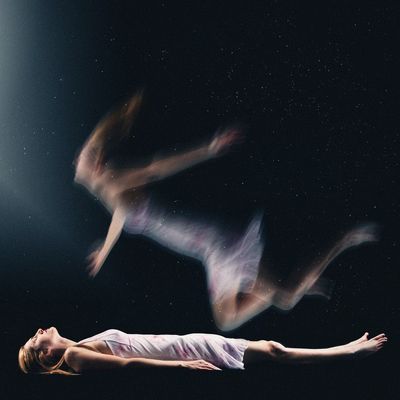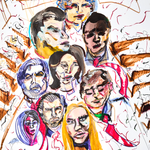
The coronavirus pandemic has upended nearly every aspect of our waking lives — our routines, our job security, our hopes for the future. Days are suffused with fear for our health and our loved ones. Checking the news — seeing dystopic images of empty cities and graphs of crashing markets, learning the latest death toll — is as sweat-inducing as going to the gym used to be. And our nights are changing, too: our sleep can be fitful, our dreams darker — and, for many, unusually memorable.
Some pandemic dreams dramatize the feeling that we are being held hostage by a mysterious predator. Katy Fallon, a journalist in Athens, Greece, dreamed the other night that she and her brother were trapped in their late grandmother’s house. “There is ‘bad stuff’ happening outside but it isn’t explained why we cannot leave,” she says. “Then it becomes apparent that there are giant wasps who are part prawn and they are slowly coming in all the windows.” Deirdre Barrett, a psychologist at Harvard Medical School and the author of The Committee of Sleep, had a dream “where I was in a lovely old-fashioned library feeling mostly cozy and good but knowing there was this horrible catastrophe right outside the curtained window.”
Barrett suggested that the spike in dream recall is a side effect of the slower-paced lifestyle some non-essential workers are now leading. “Changing one’s routine dramatically often leads to more dream recall,” she says. Especially when the new routine involves more sleep. “The American population runs around sleep-deprived,” and while some are now struggling to sleep or staying up late after losing work time to child care, “I hear more people who — both because their workaholic activities are interrupted and their partying is on hold — they’re sleeping more. I think that’s probably the single biggest factor.” So-called “REM rebound” could also play a role: when we are catching up on missed sleep, we can experience a surge in Rapid Eye Movement sleep — the phase in which most dreaming occurs.
Barrett has been collecting coronavirus dreams in an online survey, and offered a few preliminary observations. “The majority of dreams have anxiety as the main emotion,” she says. While some are “terrified nightmares” — such as one in which a woman tests positive for COVID-19 and receives a lethal injection instead of treatment — threats are often more oblique: a swarm of maggots, a violent grasshopper, a brewing storm.
The majority of my own pandemic dreams have been mundane, mirroring my diminished creative capacity and my new, boring fixations: grocery lists, cooking, the twitchy backdrop of social media. I dreamed that I added too much broth to a stew; that I had 73 notifications on Twitter; that I discovered several bananas in the kitchen. Some were ripe, some green. “Wow,” I thought. “Bananas.” My friend Esther recently had her first Covid-19 dream, about searching her cupboards for food she had forgotten about. As Freud observed more than a century ago, dreams often include the “residue of the day.”
For essential workers, the day’s “residue” may be painfully realistic. Phoebe Horvath, a nurse at a retirement community in Seattle, has been having nightmares about running out of time. In one, “I was running around work trying to care for our positive residents and then I looked at the clock and it was 3 p.m. and I had actually done nothing. This was very literal because I have had multiple days at work where I have literally been running.”
Some of our anxiety dreams may serve a purpose beyond rehashing our worry-filled days. Learning a new skill often leads to a flood of dreams, which in turn reinforce the lessons. In one study, people enrolled in a French-language intensive remembered more dreams, and even had an increase in REM sleep, during the program than before or after it. We are all in the midst of relearning the social codes and etiquette we have been practicing all our lives — how to greet each other, how to share space — and many of our dreams concern fears that we, or our fellow citizens, are violating the new protocols. One Twitter user dreamed of being coughed on at the supermarket. Another (@jessblaster) dreamed of trying to stop people from high-fiving each other by shouting “CORONAVIRUS.” Christopher Button, a nurse in London, dreamed of fending off hugs from colleagues on his ward.
Even our nightmares may help us adjust to our new reality. According to the “threat simulation theory,” dreams evolved to let us work through our fears in a low-risk environment, helping us prepare for stressful events in real life. Under more normal circumstances, that could mean that a student preparing for an exam has a nightmare about turning up to the test naked; she wakes up relieved to discover that she still has the opportunity to get dressed and enters the exam room more confident, desensitized to at least one strand of anxiety. After journalist Katy Fallon woke up from her nightmare, she says, she was at first “exhausted” and “scared” — but once she recovered, she felt “relieved that it’s ‘just’ a pandemic and there are no weird prawn monsters after me.”
Last night, I dreamed that coffee had been rationed to one cup per person. I tried to skirt the rules by presenting the distributor with a pot instead of a mug. This morning, I was grateful to be able to brew my usual two cups.




